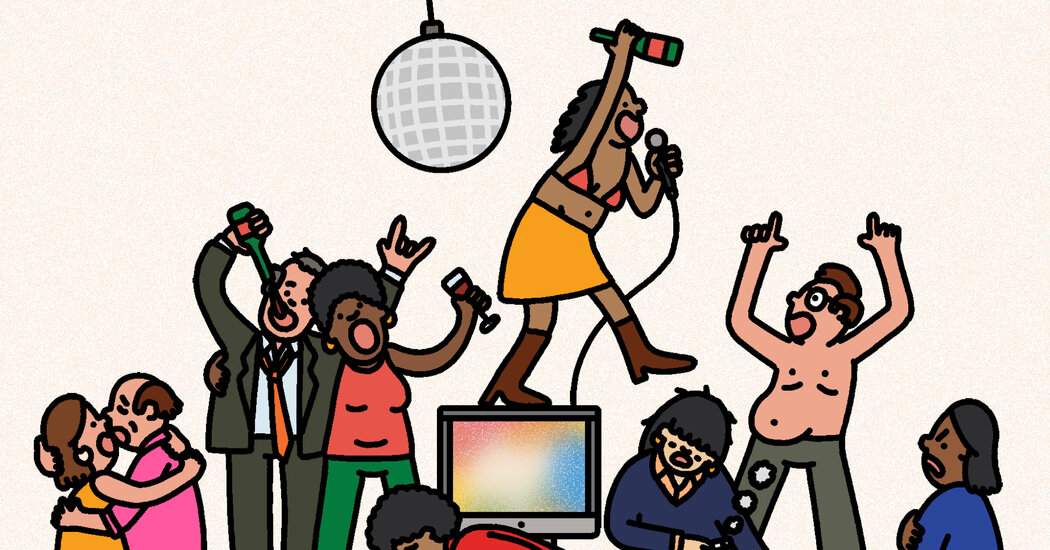Through the first year of a pandemic that killed more than 100,000 Britons and locked down millions of others, Boris Johnson, Britain’s prime minister, was in the mood to party.
In May 2020, Mr. Johnson enjoyed wine and cheese with more than a dozen staff members in the Downing Street garden. Days later, he attended a “bring your own booze” party organized by his private secretary. That June, the prime minister celebrated his birthday in the Cabinet Room with up to 30 others. In January 2021, he reportedly attended an aide’s going-away party.
A much-anticipated government report said plainly that “some of the events should not have been allowed to take place.” After its publication, Mr. Johnson apologized, promising to “learn from these events” in a statement to the House of Commons. “It is no use saying that this or that was within the rules,” he said. “It is no use saying that people were working hard.”
A continuing police investigation is likely to determine the number of times Mr. Johnson partied in the first two years of the pandemic. For now, he faces mounting pressure to resign.
If there is one thing to learn from the slow-motion train wreck of Mr. Johnson’s premiership, it’s a fairly easy lesson: Don’t party during a pandemic. But bosses, you would do well to learn another: Office parties are not for you.
The best thing a boss can do at an office party is not come. The second-best thing is to leave. If people in charge stay too long at a staff party, there are two likely outcomes: They’ll do something inappropriate, or one of their employees will.
To be sure, there are some benefits to mingling in a social setting (when not in the midst of a pandemic), one of them being that managers and employees can remind one another that they’re human beings. But the best bosses understand their office party assignment: They must buy the booze, toast with the booze and say no more than two out-of-touch things about the cost of living. Then they must leave.
Some bosses shouldn’t ever try to socialize. I had one boss who regularly suggested we clock off early to go to the pub, which created an unfortunate conundrum for those of us who didn’t want to hang out with the person about whom we spent most of our free hours complaining. But mostly, I’ve been blessed with bosses who know the proper party protocol: They stay for an hour at most or never turn up at all.
The best office parties involve a fair amount of gossiping, venting and — when they take place at the actual office — peeking inside off-limits cupboards. None of these things are possible when the boss is there. One wrong word, one inappropriate dance move, one stray bit of vomit, and a career implodes. No matter how much bosses loosen up, they cannot relax the grip they have on their employees’ continued survival.
“Aha!” you might say. “But I am a fun boss, a cool boss, the C.E.O. of having a good time.” And to you I say: That is so much worse.
Bosses should not force employees to laugh at their jokes or make them watch, captive, as they flail their limbs to a beat. I’ve been the employee who demands the boss “Stay! Drink! Dance!” and I am now here to say: Do not listen to that employee. (I’m lucky my calls went unheeded: Ten seconds of karaoke, and a rubber stamp would’ve come down on my file, screaming, “DO NOT PROMOTE.”)
The worst office parties become competitions to gain the boss’s favor, which should never be determined by how sincere a compliment sounds at a definitely-not-mandatory social event.
And when pints and promotions go hand in hand, inequality festers. Booze-centric partying excludes those who don’t drink for religious, health or any other reasons. A 2016 report by Demos, a British think tank, found that 43 percent of young workers felt teetotalism was a barrier to integrating into the workplace. Working parents who can’t spend hours at the pub or bar also risk exclusion.
Office partying has been linked to gender-based harassment. A 2019 survey by researchers at Penn State and Ohio State University found that in the workplace, for both men and women, “fun activities in general are associated with higher levels of unwanted sexual attention” and that “mandatory attendance and holding the activities on nights and weekends” increased the likelihood of “unwanted sexual attention.” When a colleague crosses a line, that’s one thing, but it’s far harder to speak up when it’s the boss.
That’s not to say office parties should be scrapped — they’re a great way for colleagues to bond and for employers to show appreciation. But at their most memorable, they typically don’t involve what one might describe as professional behavior. The most talked-about office parties involve someone breaking a table, someone throwing up in a corner of the office or someone sleeping in said office until the next day. But this sort of fun is fun only when a boss neither witnesses nor encourages it.
So, bosses of the world, please learn from Mr. Johnson’s blunders. Office parties are not for you. They are for you to fund, certainly, but after a few sips of warm champagne, you should leave your employees and let them carry on.
Amelia Tait (@ameliargh) is a journalist based in London. Her work has appeared in The Guardian, Vice, Wired, GQ and other publications.
The Times is committed to publishing a diversity of letters to the editor. We’d like to hear what you think about this or any of our articles. Here are some tips. And here’s our email: letters@nytimes.com.
Follow The New York Times Opinion section on Facebook, Twitter (@NYTopinion) and Instagram.


























